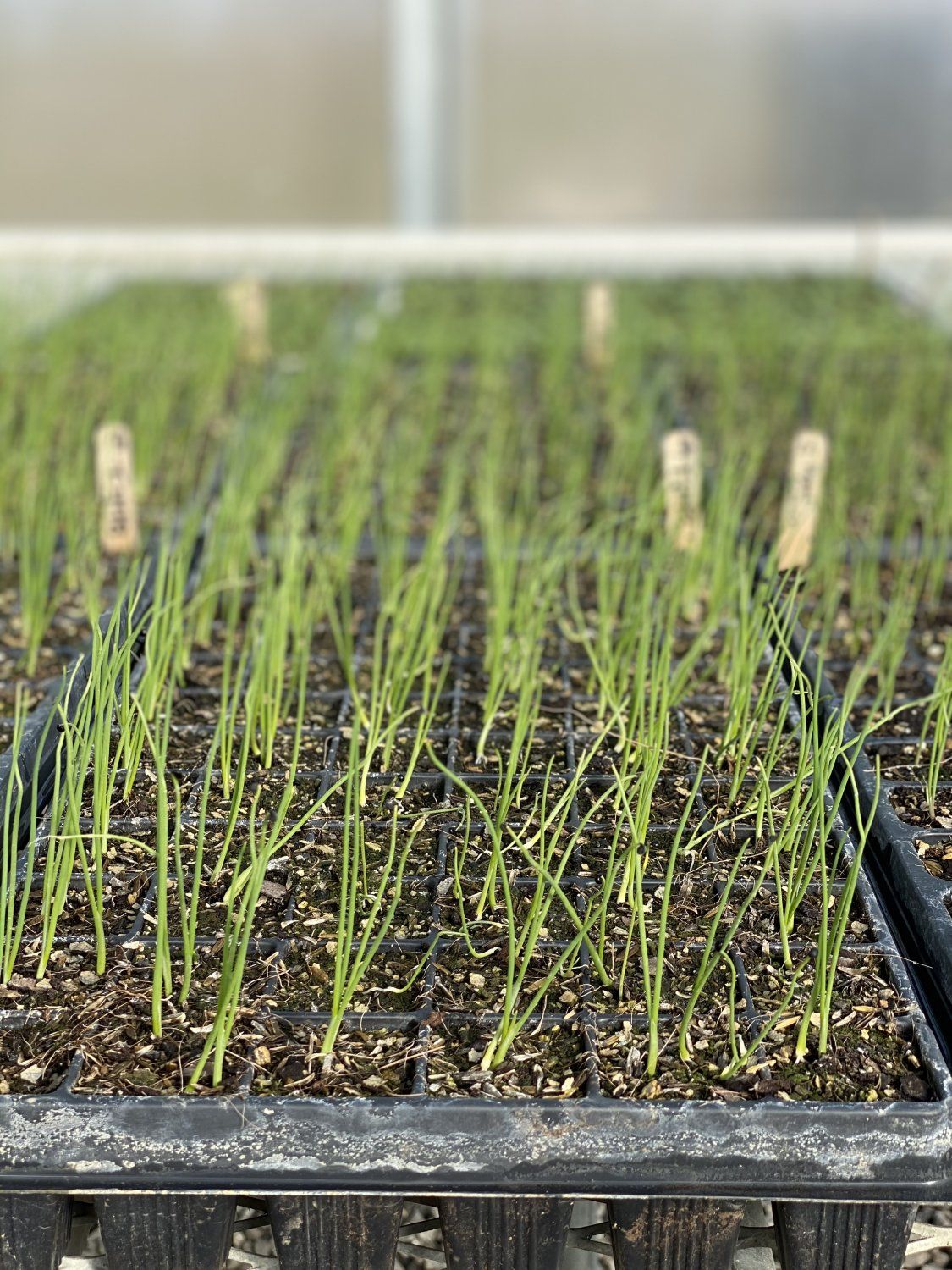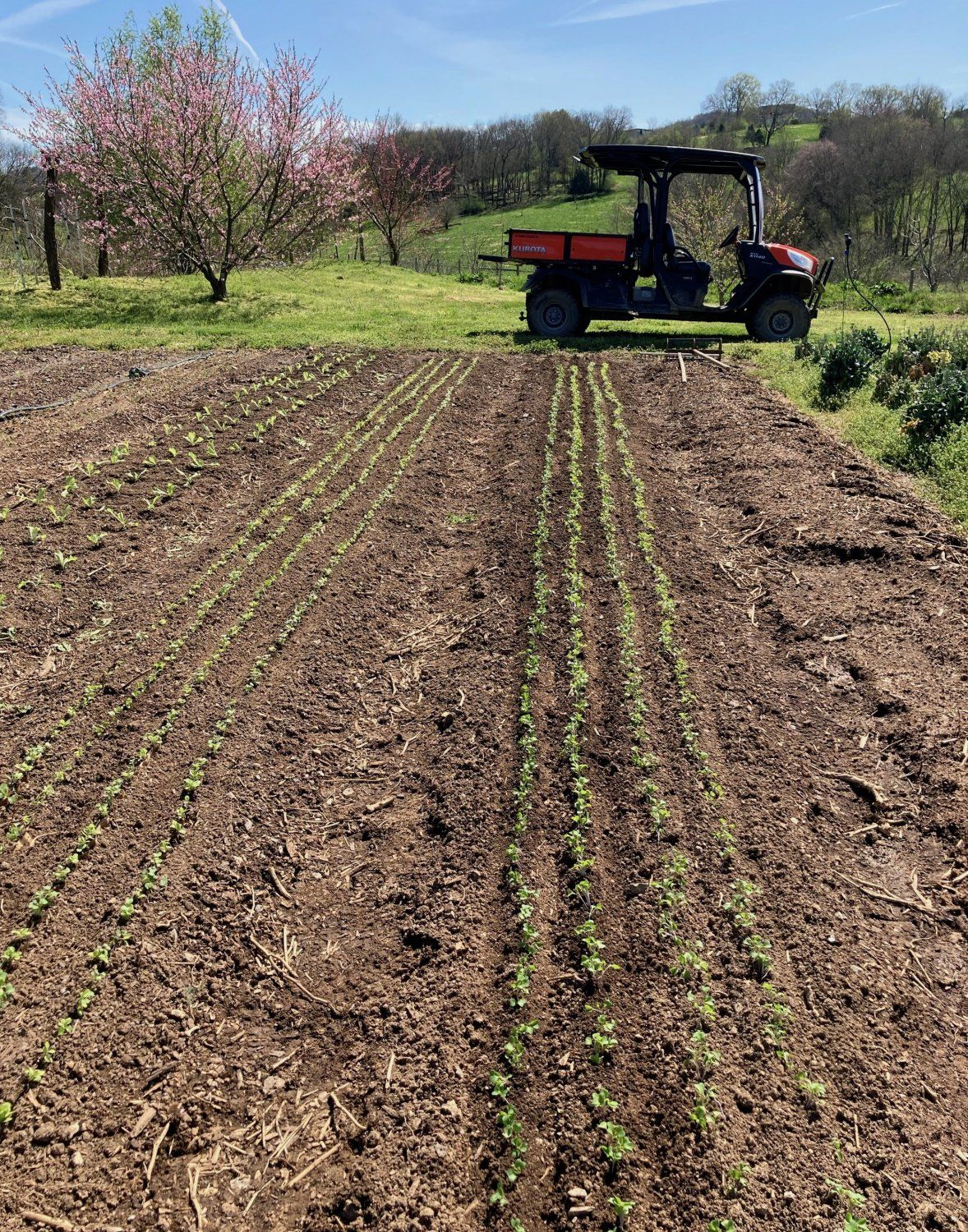Rain kept us out of the garden yesterday, but sunshine throughout the week allowed us to get quite a bit of spring crops in the ground. French breakfast radishes, mizuna, mustards, mesclun salad mix, lettuce, fennel and collards have been planted and will soon be growing into your future groceries. We are also eager to get some onions and potatoes in the ground as soon as it dries up.
Spring is an unpredictable time of year in Tennessee. Heavy, sometimes sporadic rain and the ever impending threat of a late frost mean farmers have to act quickly but cautiously at the same time. We can't work up or plant a soggy garden bed, so we are constantly attuned to the weather and try to take advantage of dry spells. Late March is a time for planting cool weather crops than can handle cold nights and a few possible freezes - hence all the greens. Our greenhouses help, as anything planted in there will have added protection from the cold. Farming is always a juggling act though, spring time is just the beginning.
What's in the veggie box:
- Beef Bone Broth - from the farm, $15/quart (available to swap if you have a meat share)
- Beef Tallow - from the farm, $8.50/pint (available to swap if you have a meat share)
- Rendered Leaf Lard - from the farm, $8.50/pint (available to swap if you have a meat share)
Think you have to drink milk to get calcium? Think again. 1 cup of collard greens contains more calcium than an 8 oz glass of milk. Chewing or chopping collards allows for the activation of glucosinolate metabolites, which, along with the vegetable's phytochemicals, contribute towards the anti-inflammatory and antioxidant properties of these veggies. This wealth of antioxidants can help promote the immune system and ward off cancer with vitamin E, Vitamin C, beta carotene and manganese. Decreasing inflammation affects your whole body, allowing it to work more efficiently and with less pain and can reduce your risk of developing insulin resistance and other metabolic diseases.
Collards are part of the cruciferous family, named as such because the four-petaled flowers of these plants resemble small crosses. Frost-sweetened but heat hardy, these greens are a great addition to a regular meal rotation. There is no wrong way to eat collard greens. You can add them to soups, braise them, saute them, or eat them raw. To extend shelf life, be sure to keep them in a ventilated but closed package in your refrigerator to preserve moisture. If wilted, try cutting off a bit of the stem and soaking in ice water to revive the leaves.
**Use the code CANEYFORK2021 to receive $25 off your treatment at HaLé Integrative Health
Recipes
Marcia's Black Beans and Rice with Collard Greens




